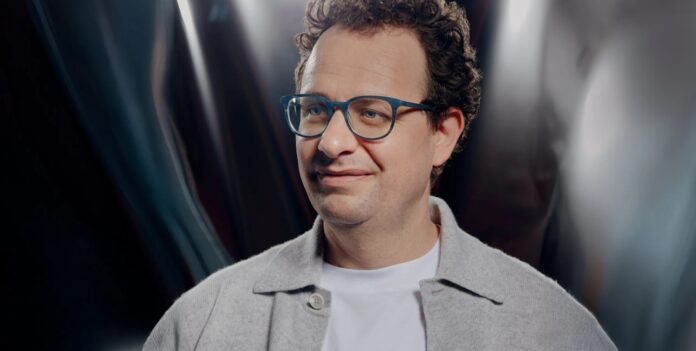In the world of artificial intelligence, a new player is emerging with a promise that could reshape the future. This company, Anthropic, is taking a distinctly different approach to AI, one that centers on ethical considerations and the long-term implications of creating systems that interact with humanity. Born out of the ranks of OpenAI, Anthropic was founded by a pair of siblings—brother and sister—whose backgrounds are as unconventional as their vision for the future of AI. Their goal is clear: build an AI that’s not just powerful, but benevolent.
A Vision Crafted from OpenAI’s Origins
Anthropic was formed in 2021 by Dario and Daniela Amodei, both of whom had deep roots in the AI industry, particularly at OpenAI. Dario, a former VP of Research at OpenAI, and his sister Daniela, a former English major turned AI researcher, share a unique dynamic that blends intellectual rigor with a holistic approach to technology. Their collaboration is not just about creating more advanced algorithms, but about redefining the ethical boundaries of what AI can and should do.
The foundation of Anthropic was built upon the realization that while AI has the potential to bring about tremendous advances, it also carries with it significant risks. Dario’s work at OpenAI had led him to witness firsthand the explosive capabilities of large language models—such as GPT—but also the dangers they posed in terms of misuse, unpredictability, and ethical dilemmas. This realization sparked the desire to create something different: an AI system designed with safety, alignment, and long-term viability at its core.
Thus, Anthropic’s flagship project was born: Claude, an AI system designed to act as the most upstanding citizen in the AI ecosystem, committed to following ethical principles in every interaction.
Claude: The AI That Wants to Be Good
Claude, named presumably after Claude Shannon, the father of information theory, is Anthropic’s answer to the growing concerns about AI’s unchecked power. Unlike many of its counterparts, which prioritize sheer scale and performance, Claude is designed with a primary focus on alignment. This means that Claude isn’t just a language model that answers questions or completes tasks—it is one that strives to understand human intentions, respects ethical guidelines, and seeks to minimize the risks that come with AI’s deployment.
The approach behind Claude is informed by Anthropic’s deep commitment to making AI systems more interpretable, controllable, and predictable. Unlike models trained primarily on massive amounts of data in an attempt to increase their performance, Anthropic’s model development revolves around designing for transparency and safety. This involves techniques like reinforcement learning with human feedback (RLHF), a method that helps guide Claude’s behavior toward outcomes that are more in line with human values.
One of the most striking aspects of Claude is its responsiveness to complex moral and ethical questions. When asked to engage in discussions about sensitive topics, Claude’s responses are not just fact-driven; they reflect a careful weighing of potential impacts on individuals, communities, and society as a whole. This ethical sensitivity marks a sharp contrast to the “black box” nature of many AI models, which often operate in ways that even their creators may not fully understand.
In its most basic form, Claude is about trying to make sure AI behaves in a way that reflects our collective humanity. It’s not about avoiding problems but creating systems that are better equipped to understand, address, and mitigate them.
A Family Affair: How Two Siblings Are Steering the Future of AI
The Amodei siblings’ backgrounds are integral to understanding the ethos of Anthropic. Dario’s extensive experience in the technical aspects of AI is complemented by Daniela’s more human-centered approach, stemming from her background in English literature. This interdisciplinary perspective helps inform how Anthropic approaches the development of AI. Rather than focusing solely on optimization and scale, Anthropic is equally concerned with the philosophical, social, and ethical implications of their work.
Daniela, who has also worked in research roles, has emphasized that their work at Anthropic is driven by a commitment to ensuring that AI is built responsibly. Their goal is not to create a tool for mere convenience or entertainment, but to develop systems that contribute positively to society. It’s a noble vision—one that stands in contrast to the typical arms race of tech companies trying to build more powerful, more efficient models without fully grappling with their consequences.
Their approach can be seen as a deliberate break from the kind of AI “wild west” that often dominates Silicon Valley, where rapid development is prioritized over thoughtful regulation and consideration of societal impact. In contrast, Anthropic is slow and deliberate in its methodology, focusing on creating systems that will stand the test of time, not just technological progress.
Why Anthropic’s Success Could Lead to a New Age of AI
If Anthropic succeeds in its mission, the world could witness the rise of AI that acts with a fundamentally different set of values than the ones driving most current models. Rather than being dominated by unregulated growth, this new breed of AI would be designed to be a responsible partner to humanity, understanding not just our needs but our moral landscape.
This vision may seem utopian to some, but it’s a vision that’s gaining traction. AI has the potential to either enhance human life or lead to catastrophic consequences, depending on how it is developed and deployed. With Claude, Anthropic aims to tilt the scales toward the former—toward a future where AI is not an existential threat but a collaborative ally, guiding humanity through some of its most pressing challenges.
In a world where AI can often feel like an unpredictable and uncontrollable force, the work being done at Anthropic offers a beacon of hope: the possibility that we can create not just powerful technologies, but benevolent ones—tools that can enhance the human experience rather than threaten it.
If Dario and Daniela Amodei’s vision for Claude and beyond succeeds, we might be on the cusp of a new era: one where AI is truly designed to be for us, not just by us.




